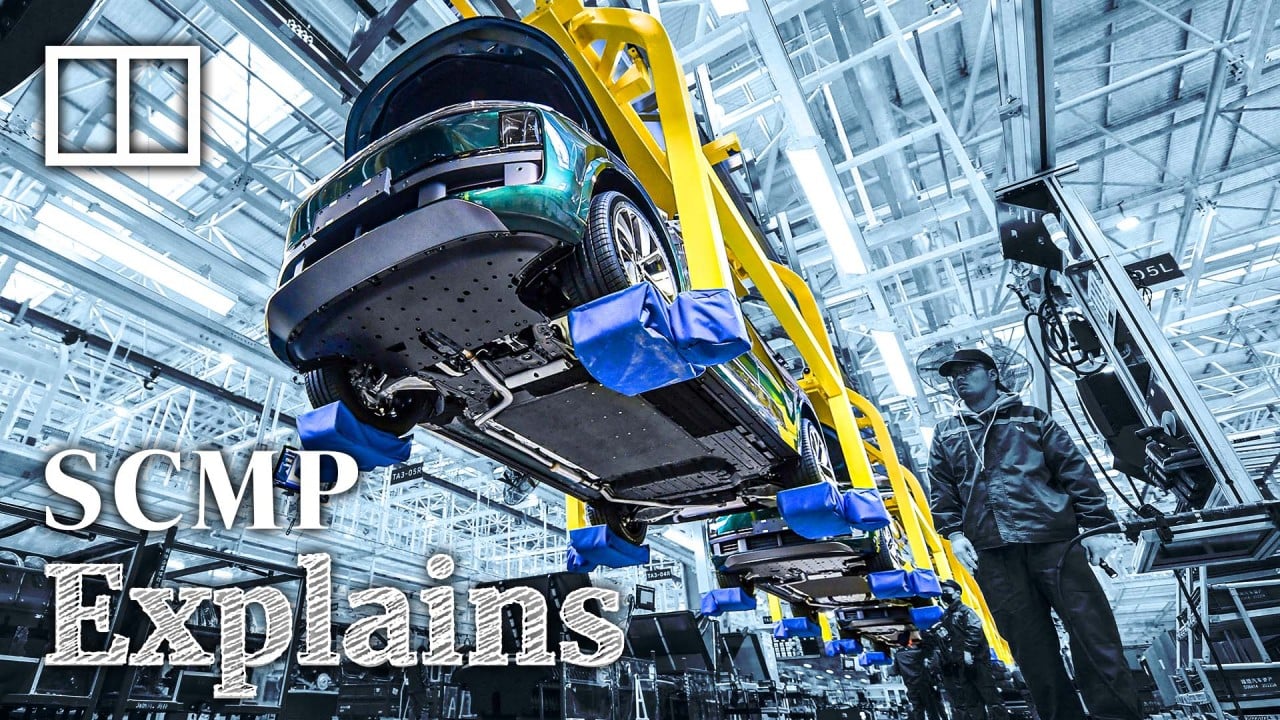Lu Feng, a professor at the National School of Development at Peking University, admitted supply overflows exist – naming petrol cars, petrochemicals, low-end computer chips, batteries and electric vehicles (EVs) as examples – but the rearrangement of the industries involved would ultimately be beneficial.
“Serious excess production will trigger painful restructuring and adjustment, eventually leading to a more mature and stable sector,” Lu said in an interview with the state-backed Economic Observer on Sunday.
The subject remains a controversial one. While leaders in China’s steel and petrochemical sectors have openly acknowledged imbalances in supply and demand, those in emerging technologies have argued the issue is not relevant to their still-developing industries.
“Recently, the sales growth rate and sales price of new energy vehicles have dropped significantly, which also reminds us that it is not appropriate to completely rule out the concern of oversupply of new energy vehicles in the future,” Lu said.
However, Europe’s imports of China-made battery-powered cars fell 19 per cent in the same period, reflecting both softened EV demand and potential retrospective tariffs for Chinese electric cars starting March 7, the US rating agency said.
Even though EVs carry strong potential, demand in the long term is less than certain, especially when trade constraints from overseas markets are factored in – an essential element to any calculus Chinese exporters make, Lu said.
“It is the natural right of Chinese enterprises in an open environment to obtain a corresponding share of the international market through fair competition,” Lu said.
“Chinese companies selling high-quality and low-priced goods in the international market are beneficial to both China’s industrial development and foreign consumers.”
China has repeatedly experienced overcapacity problems, and the most fundamental reason is economic imbalance
Huang Yiping, a member of the monetary policy committee of the People’s Bank of China and dean of the National School of Development where Lu teaches, said exporting had helped China relieve overcapacity issues in the past.
“China has repeatedly experienced overcapacity problems, and the most fundamental reason is economic imbalance at the macro level,” he said.
The International Monetary Fund (IMF) said that there were more than 2,500 industrial policy interventions worldwide in 2023, classifying more than two-thirds as trade-distorting as they likely discriminated against foreign commercial interests.
“The recent surge has been driven by large economies, with China, the European Union and the United States accounting for almost half of all new measures in 2023,” the United Nations financial agency said on April 12. “Advanced economies appear to have been more active than emerging markets and developing economies.”
Li Daokui, director of the Academic Centre for Chinese Economic Practice and Thinking at Tsinghua University, said investors were fully aware of China’s overcapacity problems but competitors like the US have not been able to present a compelling alternative – a shortcoming Li attributed to an inability to distribute the spoils from globalisation to the manufacturing sector.
“Take the US as an example. If it presses on with globalisation, its auto manufacturing industry will suffer,” Li told the state-owned China News Service on April 28.
“So who benefits [instead]? Silicon Valley and Wall Street. The question is how they can distribute these gains through taxes and other policies so that their own auto sector could share.”
